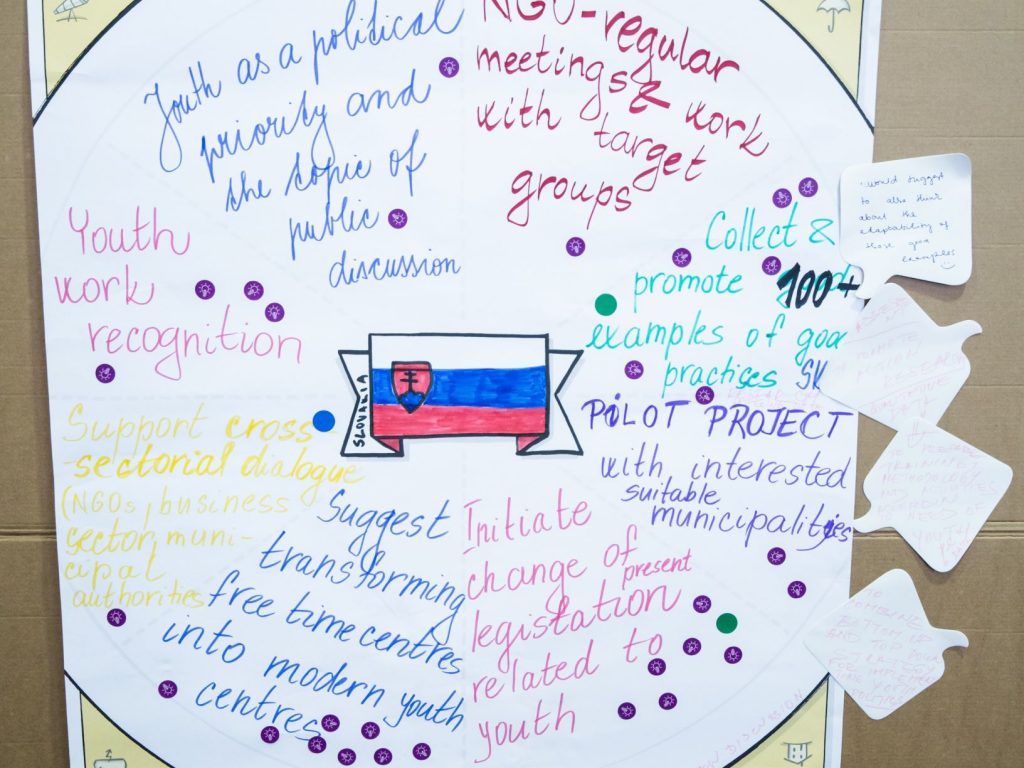I’m changing Europe!


As part of the EGL in Action series, we now sit down with representatives of National Agencies to discuss their work and action plans to advance quality local youth work within the framework of their EGL partnership. Today we talk to the EGL Coordinator within the Slovak National Agency, Lenka Babicova about the nature of the partnership between EGL and the Slovak NA ad their plans for youth work in 2020.
Q: Within the framework of EGL partnership, what are some highlights of the NA plan and strategy for 2020?
LB: Our cooperation allows for sharing know-how not only in terms of National Agencies but mainly in terms of getting municipalities involved. From previous years of experience and work in Slovakia, we know how participating municipalities have the ability to motivate and push each other forward. On the other hand, the cooperation also allows for creating international partnerships, which can strengthen municipalities through the realisation of collective Erasmus+ projects.
The projects are expanded by another country through the cooperation, the Czech Republic, which decided to join the project by the example of Slovakia.
Q: What do you hope to achieve with these activities?
LB: The Slovak NA has been involved in the EGL project from its launch. In the period of 2018 – 2019 it implemented many activities in support of local youth work. That is the reason why we decided to share our experiences and at the same time create international cooperation for the strengthening of an international partnership of municipalities. We expect that the Slovak and Czech municipalities will not only develop quality local youth work but also international youth work through our Czech-Slovakian partnerships and Erasmus+ projects. The main aim is to create stable and sustainable youth work in municipalities involving all participants and considering the needs of youth.
Q: As you mentioned, you are collaborating closely with the Czech NA. What values does this cooperation bring and how does it enhance local youth work in the region?
LB: This cooperation allows us to mutually inspire and motivate young people to participate. It allows young people who lack opportunities to get involved in international learning activities, especially people who do not speak a foreign language since our two languages are similar. This way we provide an opportunity for them to participate in international activities.
Q: How do you think your Action Plan and strategy will advance youth work in 2020 in your country?
LB: We believe that municipalities who get involved will find out how important youth work is. Being involved in the project will help them remove barriers between the younger and older generations and it will present the tools to help keep young people in town. It will also help them take into consideration the needs of the youth and create a stable environment for youth work and the youth itself.
Q: Lastly, how do you use the European Charter to create good practices and standards for quality local youth work in your country?
LB: The EGL Charter has a multitude of uses. It is used not only in EGL training within the Czech Republic and the Slovak Republic but also in training for representatives of municipalities who develop youth work on a local level. The most important part of the Charter, which we use in our practice are the principles and rules, which at good understanding show a clear path to establishing high-quality youth work on a local level. The Charter guidelines can be used by representatives of municipalities, as well as youth workers and coordinators of youth work. Many municipalities already build on this document while creating strategies and conceptual materials in the field of youth work on a local level, or in youth work itself to increase its quality.
It is necessary to mention, that in the division of competences within EGL Charter, in some areas in the Slovak Republic and the Czech Republic, the situation is not aligned with corresponding parts of the Charter. It is one of the complex documents and guides on how we can approach youth work. It sets principles, responsibilities and recommendations for municipalities and youth workers.
